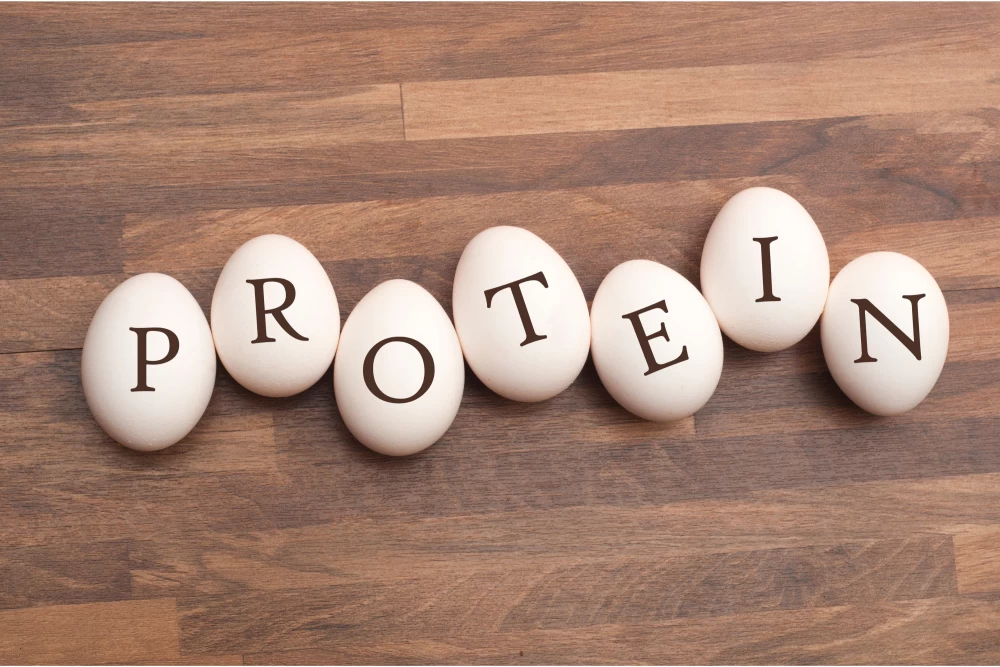
- 19th February 2024
Table of Contents
As we journey through the tapestry of life, our bodies undergo an abundance of transformations. An important consideration is that our protein requirements change with age. Proteins are essential for human health and vitality because they are the building blocks of all living things. How does the body's protein requirement fluctuate throughout time? Let's delve into the details.
Factors affecting protein requirements:
- Age
- Activity level
- Sex
- Muscle mass
- Overall hearts
- Special conditions like pregnant or lactating
A person engaging in any kind of physical activity should consume far more than 0.8g per kilogram of body weight, according to experts. The minimum amount of protein that people should consume is shown in the chart below. This recommendation is based on an average sedentary lifestyle, which means that the average person does not exercise very much.
In their early years, babies set the stage for future robust development. Our rapid development as tiny organisms calls for an abundance of proteins to support the growth of our muscles, organs, and tissues. Breast milk is ideal during this developmental stage because it provides the body with all the necessary amino acids and is abundant in protein.
A person's protein needs are high all the way through childhood. A balanced protein diet is crucial for a developing body because it helps the body to build new muscles, bones, and organs. During these years, a nutrient-rich diet is particularly crucial as it establishes the foundation for the adult body.
During puberty, a person's protein needs increase dramatically due to the fast physical and mental changes that occur during this time. Adolescence is a time of developing secondary sexual traits and maintaining hormonal shifts and lean muscle mass, both of which require protein. At this stage, a protein-rich diet is very essential since food choices affect health over time.
Nearing adulthood, there is a subtle shift in the body's protein requirements. With development slowed, the focus shifts to tissue repair and maintenance. By mending harm and preserving vital structures, proteins shield the body from harm. Maintaining a healthy weight and lean body mass can be achieved through consistent exercise, particularly resistance training.
The plot changes as we approach the end of the story. A person's interaction with proteins changes with age, among other things. Skeletal muscle, the primary protein source for the body, gradually loses mass and function. The importance of being intentional about protein consumption is highlighted by sarcopenia, a condition that impacts older adults.
.webp)
As we get older, our bodies become less efficient at converting the protein we eat into muscle. The reduced anabolic response to protein necessitates adjustments in quantity and quality. Consuming more high-quality protein sources can help older individuals combat the effects of muscle loss. Lean meats, dairy products, eggs, and proteins found in plants are examples of such sources.
The digestive system also goes through changes as we get older. Decreased production of stomach acid and enzymes can impede protein digestion and absorption. So, eating protein at regular meal intervals may help older individuals get the most out of it.
Beyond their structural role, proteins also affect immune function. The body's defense mechanisms naturally weaken with age, so it's important to keep up a high-protein diet to keep them strong. A robust immune system is a result of your body's ability to produce antibodies and immune cells, both of which are aided by a diet high in protein.
In old age, maintaining independence and mobility becomes of the utmost importance. In this pursuit, proteins play an essential supporting role by increasing muscular strength and functional capacity. Regular exercise and resistance training are essential for preventing the natural loss of muscle mass that comes with aging.
As the plot develops, it becomes apparent that the quantity of protein required by the body in old age depends on both predetermined plans and individual requirements. Selecting high-quality protein sources should be a top priority. The role of essential amino acids, particularly leucine, in facilitating muscle protein synthesis makes it all the more crucial that older persons prioritize protein-rich meals with a full amino acid profile.
The complicated terrain of protein requirements in the elderly includes dietary considerations among many others. Hydration, another component of overall wellness, complements this. A more efficient utilization of proteins is achieved when one is adequately hydrated, as this facilitates the digestion and absorption of nutrients.
In the grand tapestry of life, our eating habits reveal a story of vitality and strength. The dynamic nature of protein requirements serves as a useful reminder that no two people's dietary requirements are identical. We embark on the empowering journey of changing our eating habits to suit our bodies' evolving demands as we move through life's many stages.
By understanding the dynamic nature of protein needs throughout life, we can better accommodate our bodies' symphony of demands. Proteins are partners in the intricate waltz of life's phases, from the rapid maturation of childhood to the graceful aging of old age. May our choices, as time goes by, demonstrate the resilience and adaptability of the human spirit.














